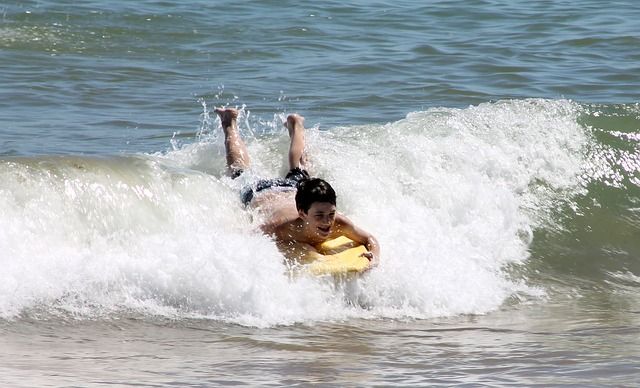The RNLI and the Irish Coast Guard are expecting a busy May Bank Holiday weekend on the coasts and inland waters, with more people enjoying the warmer weather and the brighter evenings.
The two organisations are asking people to plan ahead for any water based or coastal activities by taking some simple steps. The call comes following an increase in the number and a broadening in the type of incidents requiring RNLI and Coast Guard intervention.
Key water safety tips to remember when beside or on the water are:
- Check the weather and tide and familiarise yourself with local currents before you participate in any open water or coastal activity.
- Always carry a reliable means of raising the alarm with you.
- Tell someone where you are going and when you will be back.
- Wear a lifejacket or buoyancy aid on or near the water.
- Never ever swim alone and always ensure that somebody ashore is monitoring your progress.
RNLI Lifesaving Manager Sean Dillion said, ‘Our volunteer lifeboat crews around the coast and on our inland waters are expecting a busy season as more people are out enjoying the water. Many of the callouts we deal with could have been avoided with some simple preparation and planning. We want people to be safe on the water and enjoy themselves. Whatever activity you are planning please take a few minutes to check the relevant safety advice and always dial 999 or 112 and ask for the Coast Guard if you see someone in trouble on the water.’
Coast Guard, Head of Operations Gerard O’Flynn added: “Don’t assume that just because we have clear skies and warmer temperatures it is safe to engage in all coastal activities. Please familiarise yourself with weather and tidal information and take the time to observe prevailing conditions before you commence”.
He added that the Coast Guard has noted (on year to date basis), a very significant increase in the number of incidents being coordinated, in comparison with previous years. Activity levels have not only exceeded 2020 but are also at a five-year high.
For anyone intending to take a walk along the coast, it is important to check the times of high tide to avoid being stranded on a cove or sandbank that becomes cut off by the rising tide.
Open water swimming has become increasingly popular and there has been a notable increase in the number of people taking part, whether with a short dip or going for longer swims. Wear a brightly coloured swim cap to be visible and consider using a tow float. Never swim alone and always ensure that your activity is monitored by a colleague ashore. Water temperatures are still relatively cold at around 10 degrees making Cold Water Shock a danger. It is also important to acclimatise when entering the water.
If going on the water make sure the craft and equipment are in good condition, especially if this is the first time back on the water. Always wear a Lifejacket or PFD (Personal Floatation Device) and carry a reliable means of calling for help should the need arise. Check the weather and tides or currents before setting off.
If you get into trouble or see someone else if difficulty, call 999 or 112 or use Marine VHF Channel 16 and ask for the Coast Guard.






